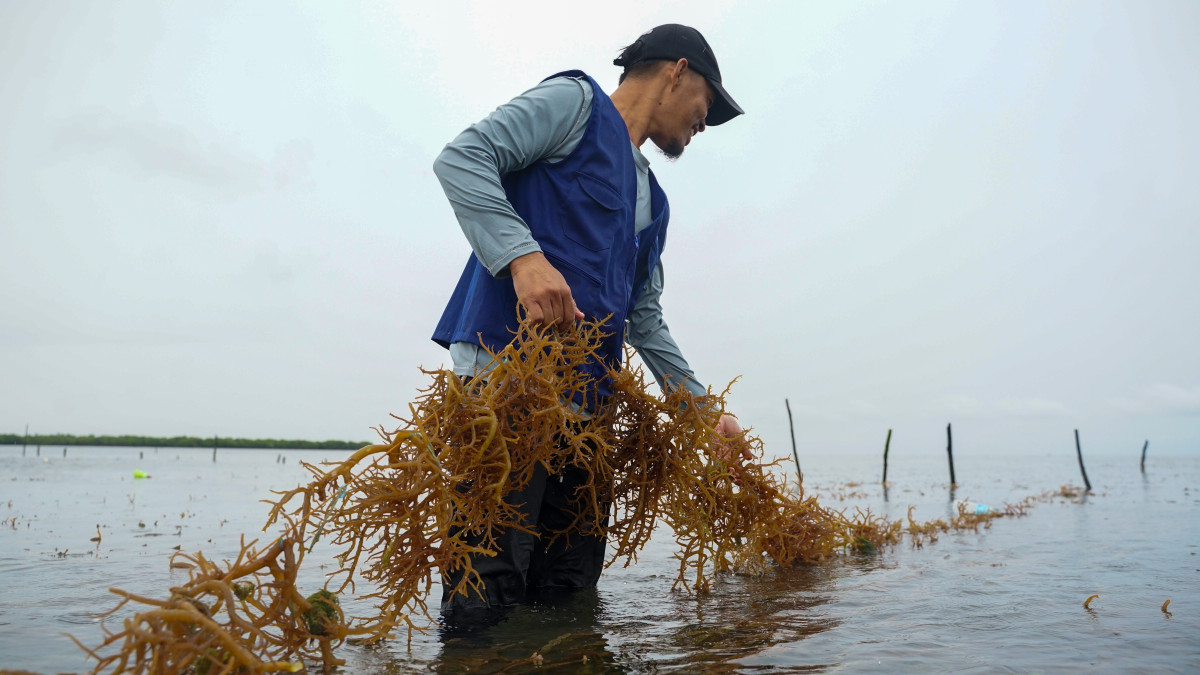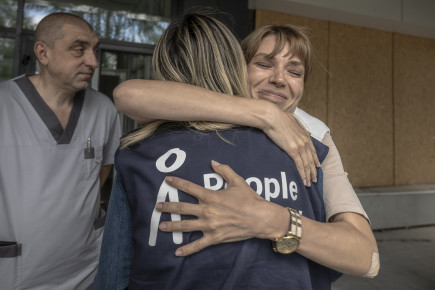Saving the Philippines' Seaweed Industry
Published: Sep 20, 2024 Reading time: 4 minutes Share: Share an articleSea Nomads. That is how people refer to Sama Badjau residents, an ethnic group from the Philippine island province of Tawi-Tawi. Living in wooden stilt houses, they have adapted to life on the sea, relying on their ability to hold their breath for extended periods underwater. Their life is fishing and seaweed farming—deeply intertwined with this region's economy.

"For as long as I can remember, my family has been seaweed farming," recalls Hudaibiya I. Kenoh, a Badjau resident. "As a child, I would help my mother plant the seaweed. Then, we would tie them to ropes, and I assisted in drying them. It's been our tradition, one we faithfully followed until the prices fell so low that we could no longer continue."
For the people of Tawi-Tawi, seaweed farming is more than just a source of income; it is a tradition and a vital part of the local culture. The region's favourable weather and expansive coastal areas—68,532 hectares, with an additional 25,917 hectares of potential farming zones—make seaweed cultivation a viable and essential livelihood. For island inhabitants, the Sama and Tausug, seaweed farming is a family-run business passed down through generations, with each member playing a specific role to ensure its continuity and success.
Despite its importance, the seaweed industry here faces significant challenges. The BARMM (Bangsamoro Autonomous Region in Muslim Mindanao) region leads the Philippines in seaweed production, with Tawi-Tawi alone contributing 627,070.42 metric tons or 40.59% of the national output, according to the Bureau of Fisheries and Aquatic Resources 2022 data. These figures have earned the island the titles of "Seaweed Capital of the Philippines" and "Carrageenan Capital of the World." However, earlier this year, the market price of raw dried seaweed plummeted from PHP 100 to PHP 35 per kilo—a drop that barely covers the cost of essential supplies such as fertiliser and fuel. This price collapse has made it difficult for farmers to sustain their operations, leading to a 25.8% decline in seaweed production during the first quarter of 2024, the most significant drop among all fisheries' major species, according to the Philippine Statistics Authority.
Findings from the World Bank Group's 2023 report on global seaweed markets highlight that competition from other seaweed-producing countries is driving down prices. These competitors often produce higher-quality seaweed, putting immense pressure on the Philippine market, particularly in BARMM. The industry is grappling with the need for more sustainable farming practices, volatile market conditions, and the challenge of maintaining quality standards, especially for products intended for food and pharmaceuticals.
A study we conducted in the Philippines also reveals a limited adoption of good aquaculture practices and a lack of technical expertise among seaweed farmers. Traditional methods, passed down through generations, often prove inefficient and harmful to the coastal ecosystem. Seaweed diseases such as "ice-ice," caused by environmental stresses like excessive heat, sudden changes in salinity, or lack of nutrients, further threaten seaweed crops, potentially causing damages up to PHP 1 billion (around €18 million).
When asked if anyone had ever taught them proper seaweed farming methods, Hudaibiya shook her head.
With the help of the local community, the Leveraging and Expanding Agri-Aqua Production in Bangsamoro (LEAP) project is stepping in to improve the local seaweed industry's competitiveness.
We will cooperate with fisherfolk groups, providing them with tailored coaching, extension services, and nurseries to improve the quality and scale of seaweed production.
We also focus on enhancing and halal-certifying post-harvest processing facilities to ensure compliance with Islamic law, making products and services suitable for Muslim consumers. Hygiene and safety are also critical, ensuring products are prepared in clean, safe environments. For businesses, halal certification attracts Muslim consumers, provides a competitive edge, and expands market reach.
Moreover, we will incorporate climate-resilient technologies, such as solar drying, and using seasonal weather forecasts help protect the environment and support farmers in adapting their cropping systems and selecting appropriate seed varieties.
LEAP is a part of the Bangsamoro Agriculture Enterprise Programme funded by the European Union. The project is implemented by People in Need Philippines, Maranao People Development Center Inc., and United Youth of the Philippines-Women.


